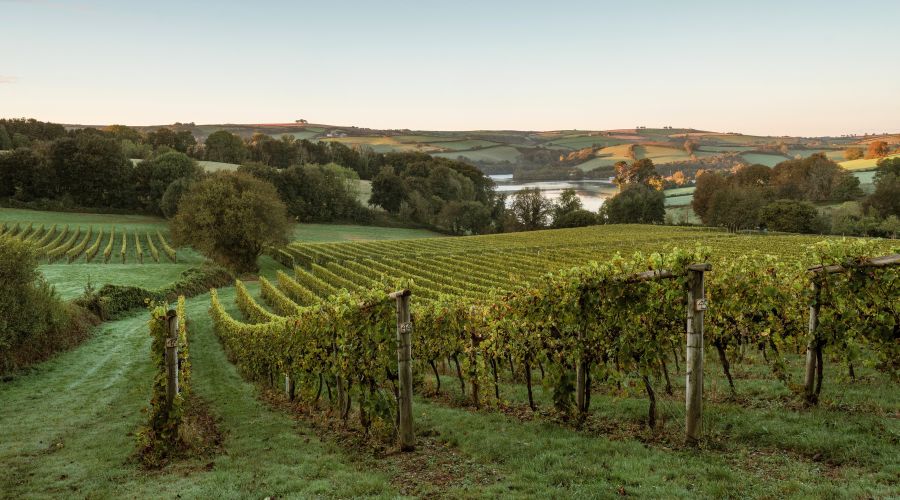Three South West vineyards share harvest update following challenging months
29th October 2024
Despite challenging weather conditions across the country, three vineyards located in the South West of England, Langham Wine Estate, Black Chalk and Sandridge Barton, have managed to navigate the season, each offering a unique perspective on their harvest.
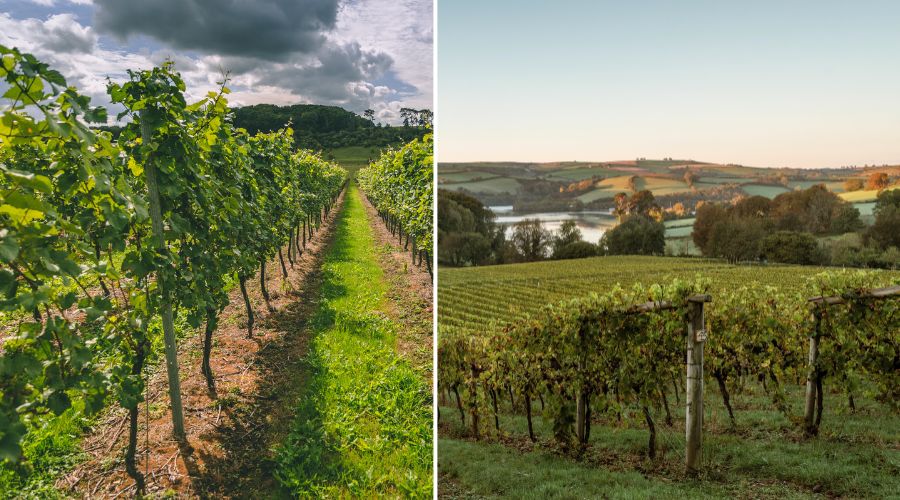
With a shorter-than-usual harvest taking place, the vineyards’ owners have spoken about their expectations, the impact of weather on grape growing, standout wines for the year and any exciting developments for 2025.
Langham Wine Estate prides itself on making wines using only its own grapes, such as Chardonnay, Pinot Noir and Pinot Meunier. The estate’s team hand harvests the fruit, taking a low intervention approach to winemaking.
Tommy Grimshaw, head winemaker, said: “Our harvest is going to be quite short this year due to a smaller crop. However, our reserve wines will play a crucial role in maintaining consistency after this vintage.
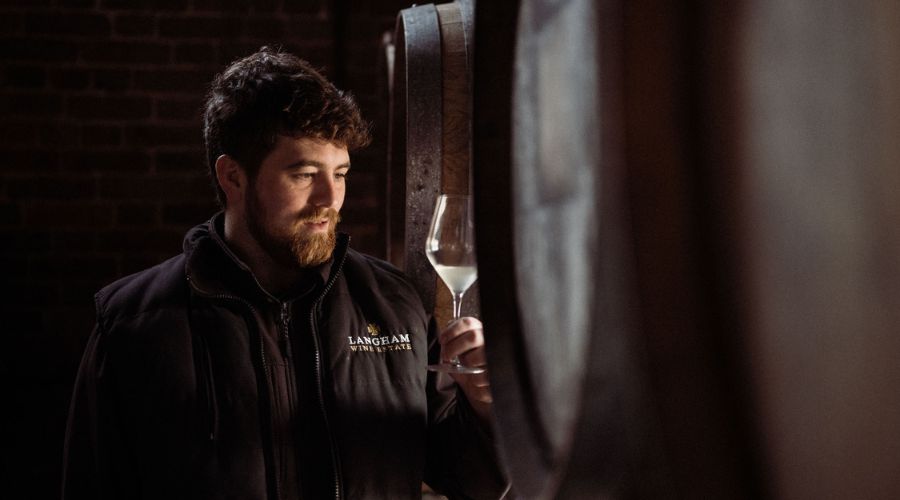
“Rain during the flowering stage in July has significantly reduced our yield this year, which may have been a blessing in disguise. The smaller amount of fruit has allowed for better ripening in the recent weather conditions.”
“This is when our reserve wines really come into their own. We’ve got seven tanks of Chardonnay and Pinot Noir at our winery, all with their own personality – some are higher in acidity, some are lower, some give us more red fruit, some are more orchard or stone fruits – so we can create our blends and then use our reserve wines to fill any gaps.
“When we have a smaller yield like we do this year, then we can utilise the wines from these tanks to keep consistency in the amount of bottles we produce.”
Mr Grimshaw added that 2024 has been a tough year for Chardonnay, but the team is expecting the grapes to come round nicely.
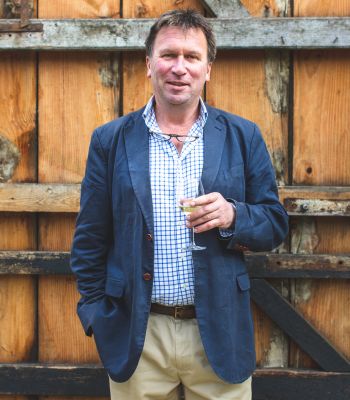
“In cooler and more challenging years, we pick later. The extra days of hang time that we need to bring the acids down and lift the sugars only enhance the phenolic ripeness of our grapes”.
Managing director, Justin Langham, added: “2024 marked 15 years since planting our first vineyard, which came as we finished planting its expansion up to 85 acres.
“We recently announced our exclusive partnership with Liberty Wines, which will help us meet growing demand and expand our distribution across the UK and Ireland. We’re excited that in 2025 we will build a brand new winery, allowing us to increase production as our new vines bear fruit and avoid having to store wine off site.
“This will be our largest investment to date, costing in the region of £2,000,000. We aim to have it operational in time for the 2025 harvest.”
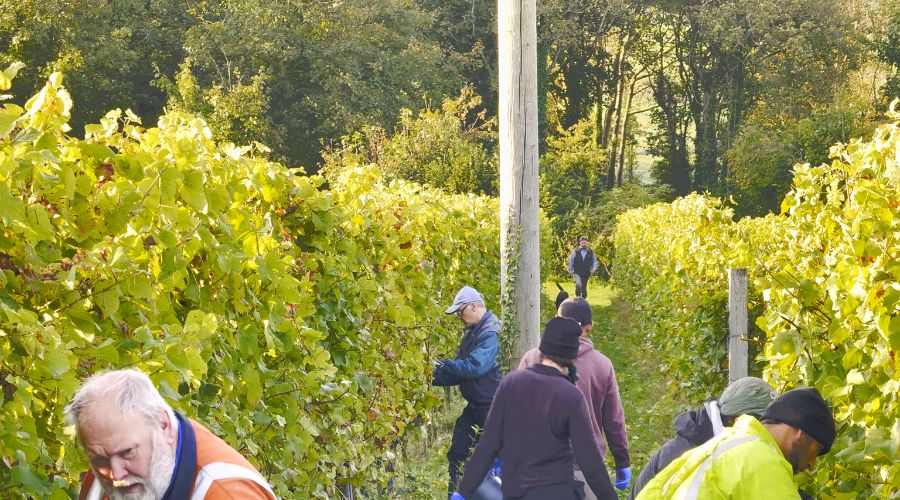
Picking what you can when you can

Black Chalk’s 30-acre estate grows 34 different clone and rootstock combinations of Chardonnay, Pinot Noir, Pinot Meunier, Pinot Précoce, and Pinot Gris. All are situated on shallow soils above solid chalk, and it is this chalk that they believe provides the purity which is key to create their quality wines, Jacob Leadley, winemaker, director and CEO of Black Chalk said.
He added: “I think harvest will be a case of picking what you can when you can. It will become about balancing quality and risk as we move through October. We will hold and aim for the ideal numbers as long as we dare. My major concern is colder weather from mid-month. We don’t want an early hard frost. However, I am quite excited about the fruit and potential wine ahead.
“Zero frost was a huge positive for us in spring, the colder, wetter growing season has led to lower yields than last year, and disease pressure has been very high. It is testament to James and Jim in the vineyard that we are sitting here in October with a healthy canopy and clean fruit, an amazing achievement in such challenging conditions.”
Mr Leadley added that Pinots always do well in cooler years. He said that 2021 was a great example of this and this year can also be very good.
The vineyard’s Chardonnay is a little further behind, but some sites are showing good numbers and flavour. The owner also said that lower yields this year, compared to last year, is certainly going to be a positive in terms of concentration and quality.
“I have been making wines in Hampshire since 2011, and despite popular opinion, I believe the difficult years can actually produce some of the best wines. The longer growing season and slightly higher acids can really play into what this part of the world does so well, pure, vibrant wines with delicate fruit,” he concluded.
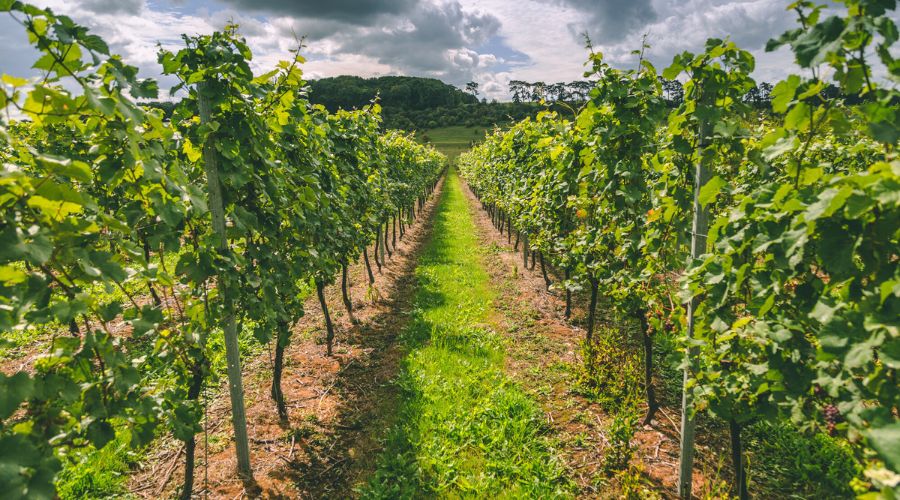
Yields down due to wet and humid summer
Located in a south-facing bowl on the banks of the River Dart, Sandridge Barton’s 32-acre vineyard grows various varieties, including Madeleine Angevine, Pinot Noir, Chardonnay, Pinot Gris, Bacchus, Pinot Blanc and Sauvignon Blanc.
The geology of the site is varied with most of the sandy loam topsoil sitting on top of mainly volcanic tuff called Schalstein, but there are also a few pockets of limestone and slate.
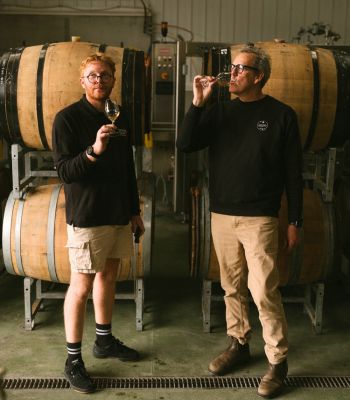
Duncan Schwab, the vineyard’s head winemaker and CEO, said: “Yields are down due to a wet and humid summer. We will crop at just under 60 tonnes with half of the (early varieties) already in the tank. We still have to pick the late grapes.
“The summer was wet with strong downpours almost every week, not leaving enough time for the canopy to dry out in between, making it a breeding ground for fungal disease. Thankfully, the end of September / early October saw some drier and warmer weather, meaning there was a spike in sugars and a drop in acidity late on.
“Madeleine Angevine is super consistent for us, with almost identical sugars and acids to the 2020 vintage, so we’re confident we’ll have some good still whites. We planted a new vineyard called Stonyfield in 2021, and this year will be the first crop from that site.
“The fruit is super clean with little disease pressure, perhaps due to better airflow as the site is more elevated and a little windier. We’re on target to have some great fruit for sparkling wines from here. The fruit we do have is actually pretty good quality, there’s just less of it.”
Mr Schwab said that the vineyard has some exciting wines in the pipeline.
Despite the challenges of 2024, these three South West vineyards remain resilient, finding opportunities to innovate and grow.
While yields may be lower, the quality of the wines promises to make this a memorable vintage, with exciting developments on the horizon for 2025.
Read more vine news.
